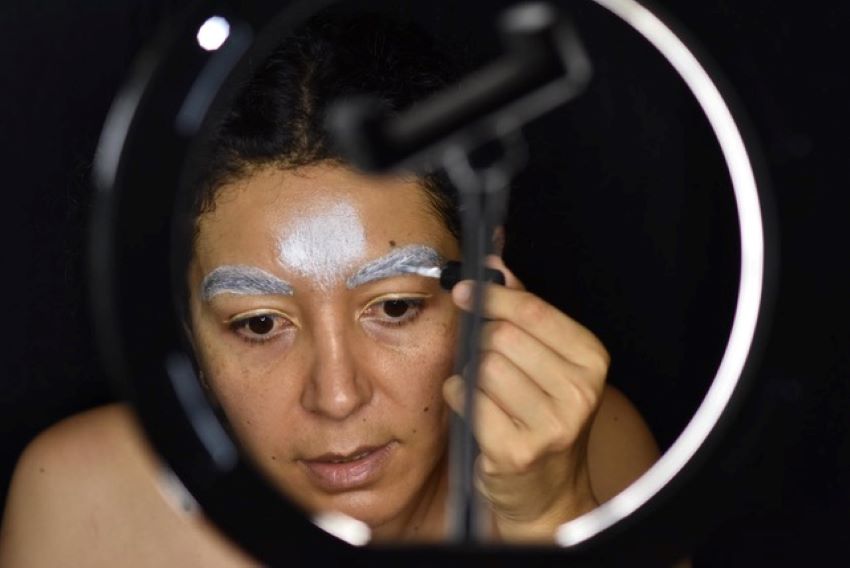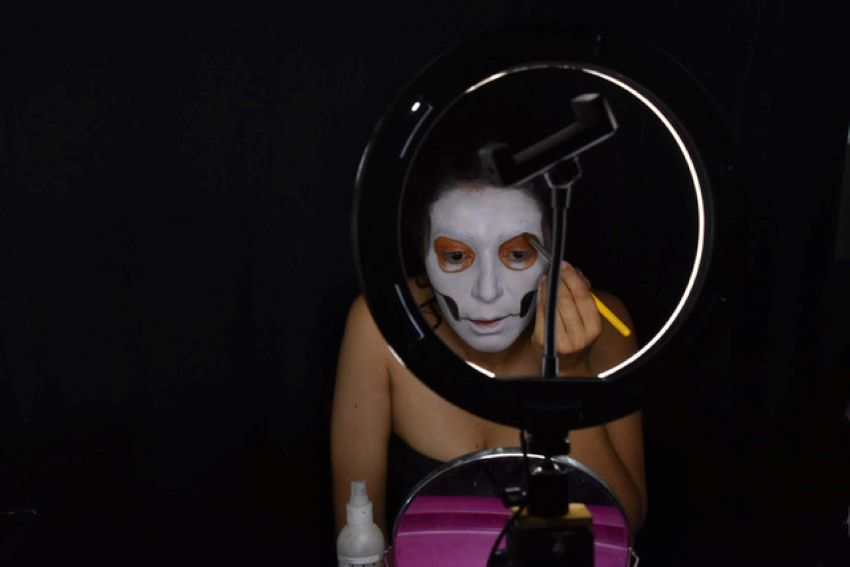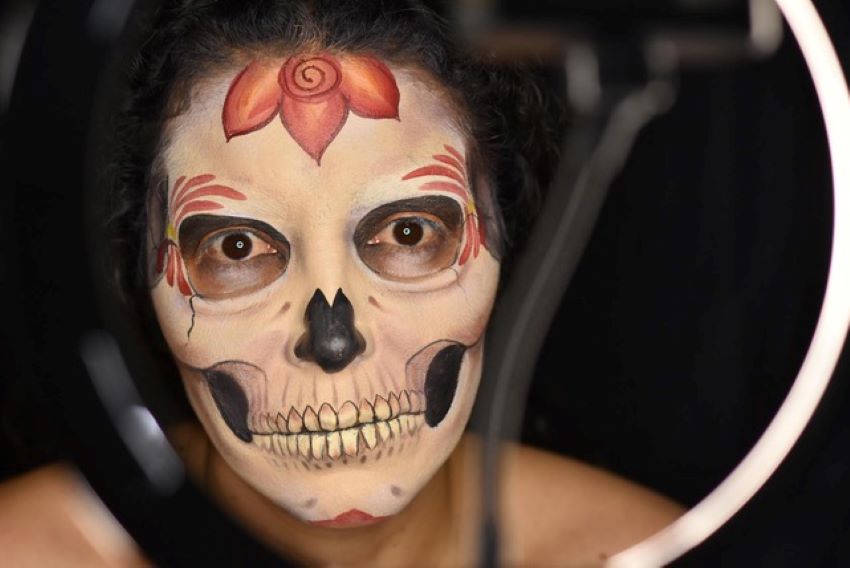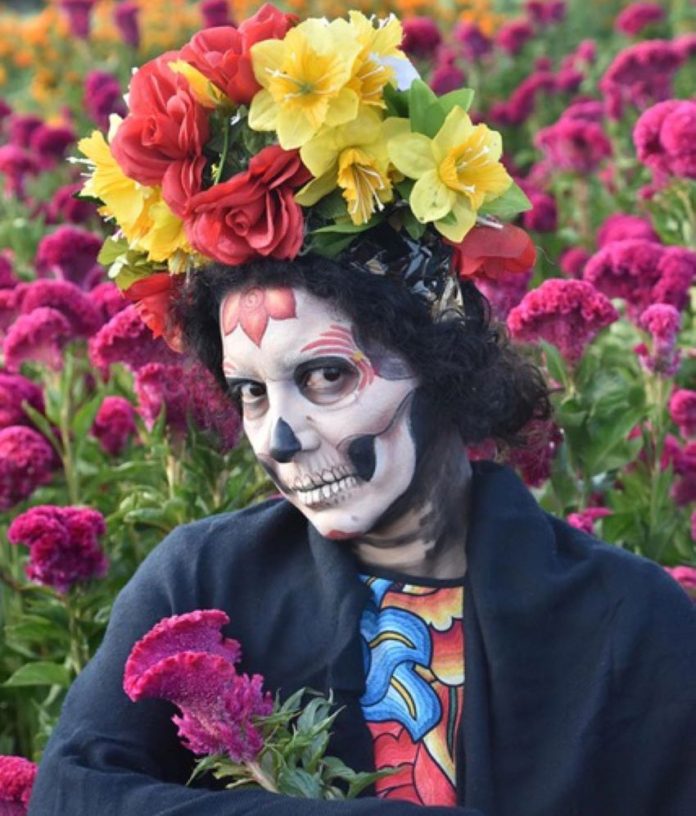It takes an hour and a half, but by the end, makeup artist Erika Ponce transforms herself from an attractive 40-year-old into a frightening skeleton known as La Catrina, the iconic image that appears throughout Mexico during Day of the Dead celebrations.
The original Catrina was an etching by José Guadalupe Posada from the first decade of the 20th century, showing a female skull in a fancy flowered hat. Posada made it to poke fun at Mexicans who were adopting European dress and rejecting their indigenous roots. Ponce sees other things in the image as well.
“It does not matter how much money or how many things you have, you cannot take anything with you at the end,” she said. “We will all be skeletons.”
Ponce trained as a chemist, but decided she preferred painting to the laboratory and taught herself to paint portraits. For the last 10 years, she’s been turning women into Catrinas.
“I transitioned from painting to this,” she said, “changing from painting on canvases to painting on faces.”

She works in her home at a small kitchen table crammed with brushes and paints, illuminated by a single light as she stares into a mirror. Intensely focused, she nevertheless carries on a conversation with her parents eating lunch at the same table while nearby, her 7-year-old son Tiago plays Beethoven on the piano.
Ponce first applies a base of greasepaint, the same stuff clowns use, followed by a layer of powder. Then it’s white and various shades of brown and black as she traces the outlines of her facial bones.
“This can take as little as 15 minutes or as long as six to 10 hours to do a whole body,” she said. “For clients who just want their face painted, it is about 40 minutes.”
Afterward, Ponce heads to a field of cempasúchil (Mexican marigold) and terciopelo (cockscomb) — the brilliantly colored Day of the Dead flowers — dressed in a traditional Mexican outfit.
“I usually dress in fancier clothes,” she said, “but traditional clothes look nice.”
She attracts a lot of attention, with people smiling and nodding at her as if they recognize an old friend.

Like everyone in Mexico — and around the world — the pandemic has adversely affected her.
She usually works at the Catrina parade in Mexico City, but that’s been canceled this year.
“It is really sad for me because it’s the holiday I love most,” she said. “And for makeup artists, it is the best time to make some money. It is a big economic loss.”
But she won’t let the pandemic stop her completely.
“We will not have parades or big festivities, but Mexicans cannot let Day of the Dead pass,” she said.

Her tone takes on a bit of defiance as she continues.
“We will celebrate at home. We will make our ofrendas [altars], we will dress up, do our makeup and enjoy hot chocolate, hojaldras [pastries] and pan de muerto [bread of the dead] with family and neighbors. We will think about our family members who passed away and celebrate their lives with fun anecdotes.”
But during the fun and curtailed festivities, she’ll remember why she continues to celebrate the holiday and why she spends hours transforming herself into a skeleton. It’s a realization perhaps more poignant this year.
“We do this to remind ourselves that life is short.”
• More of Ponce’s work can be seen here and more information can be found on her Facebook page.
Joseph Sorrentino is a regular contributor to Mexico News Daily.
